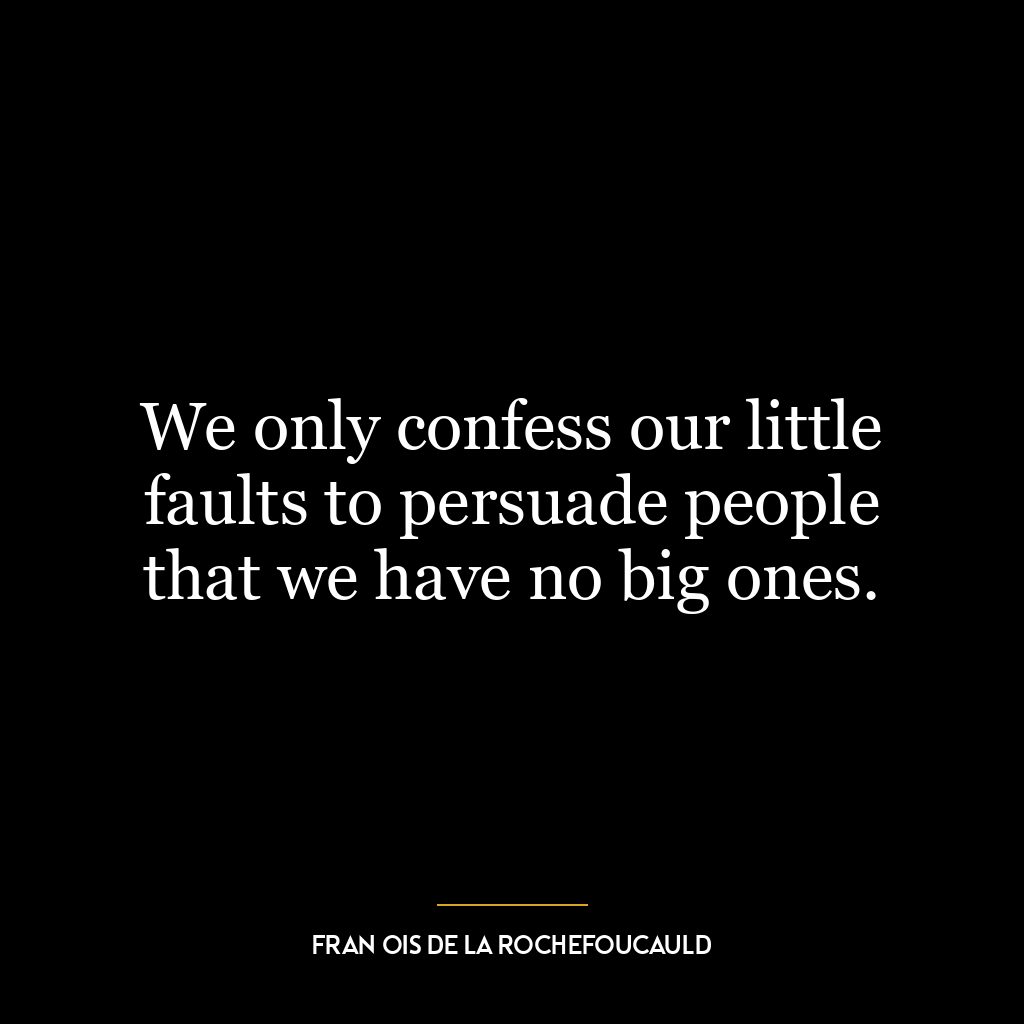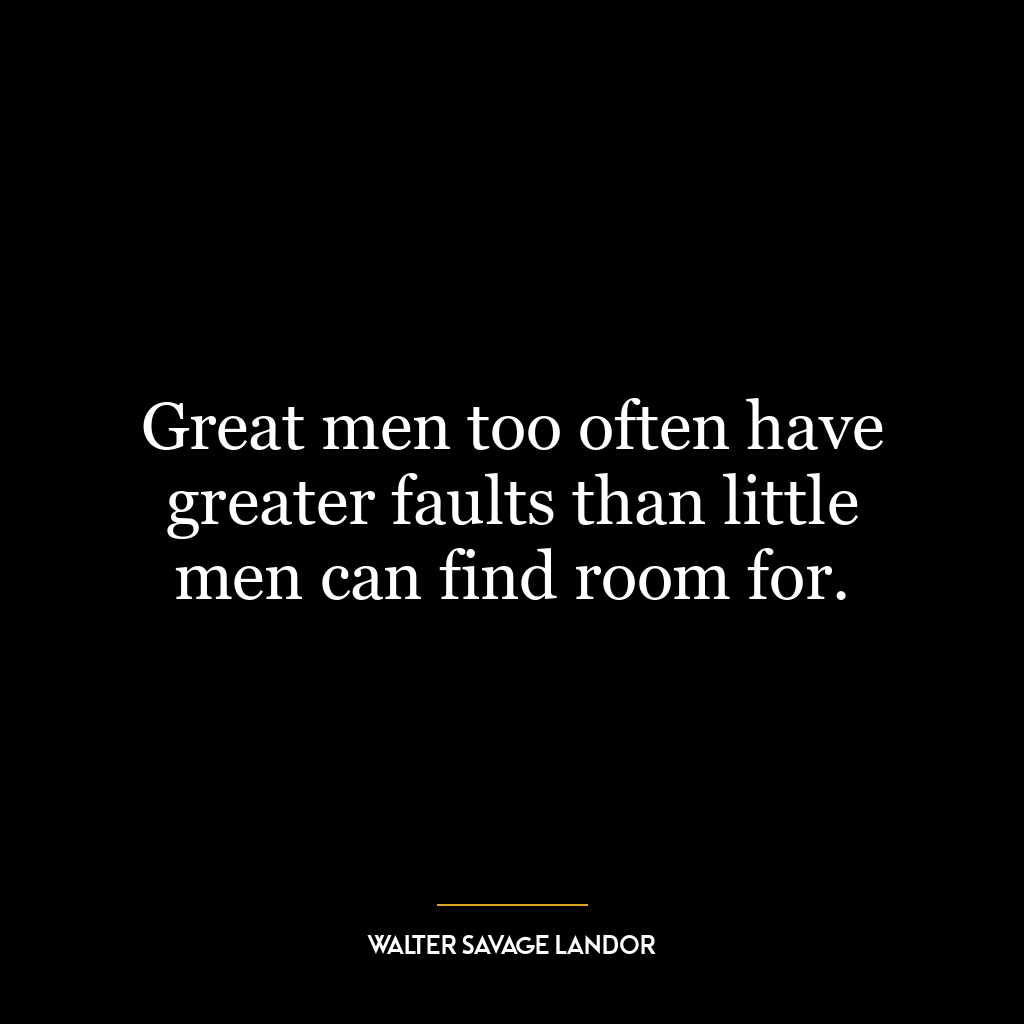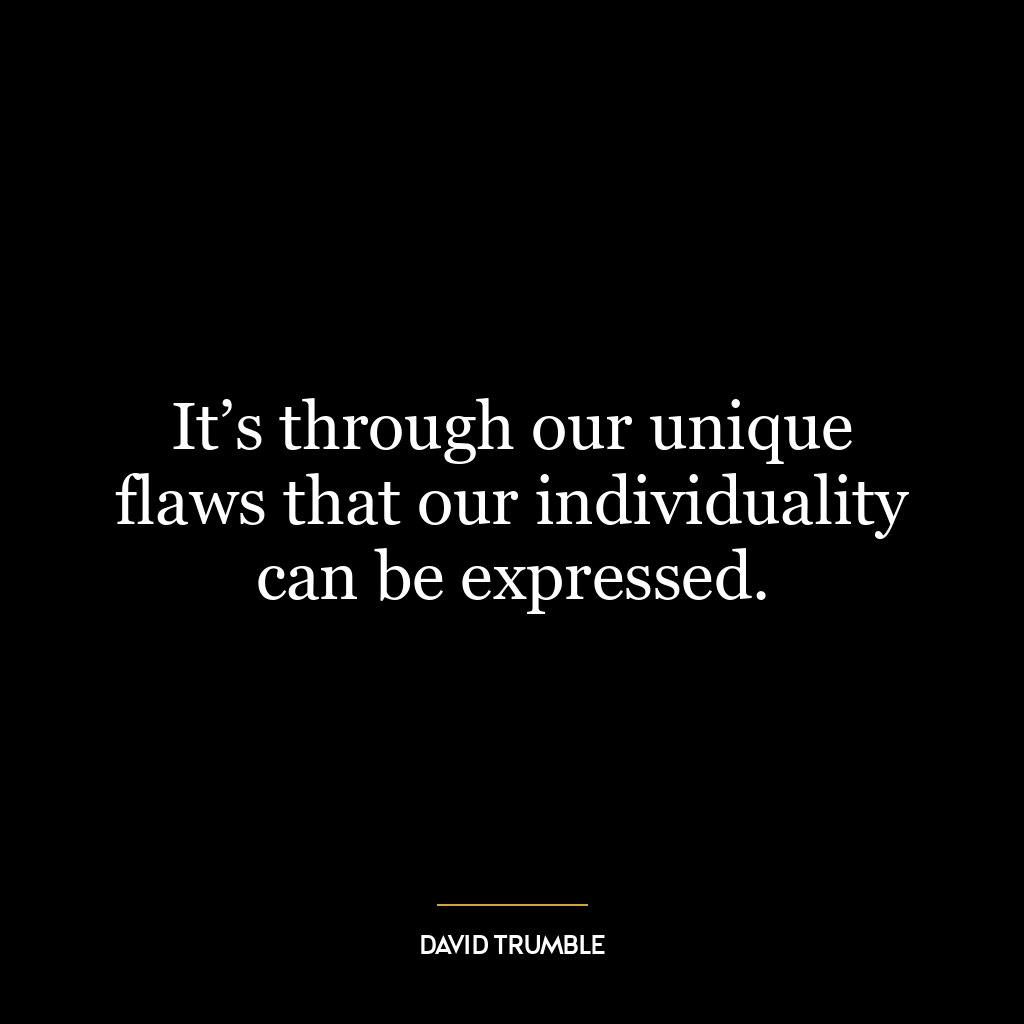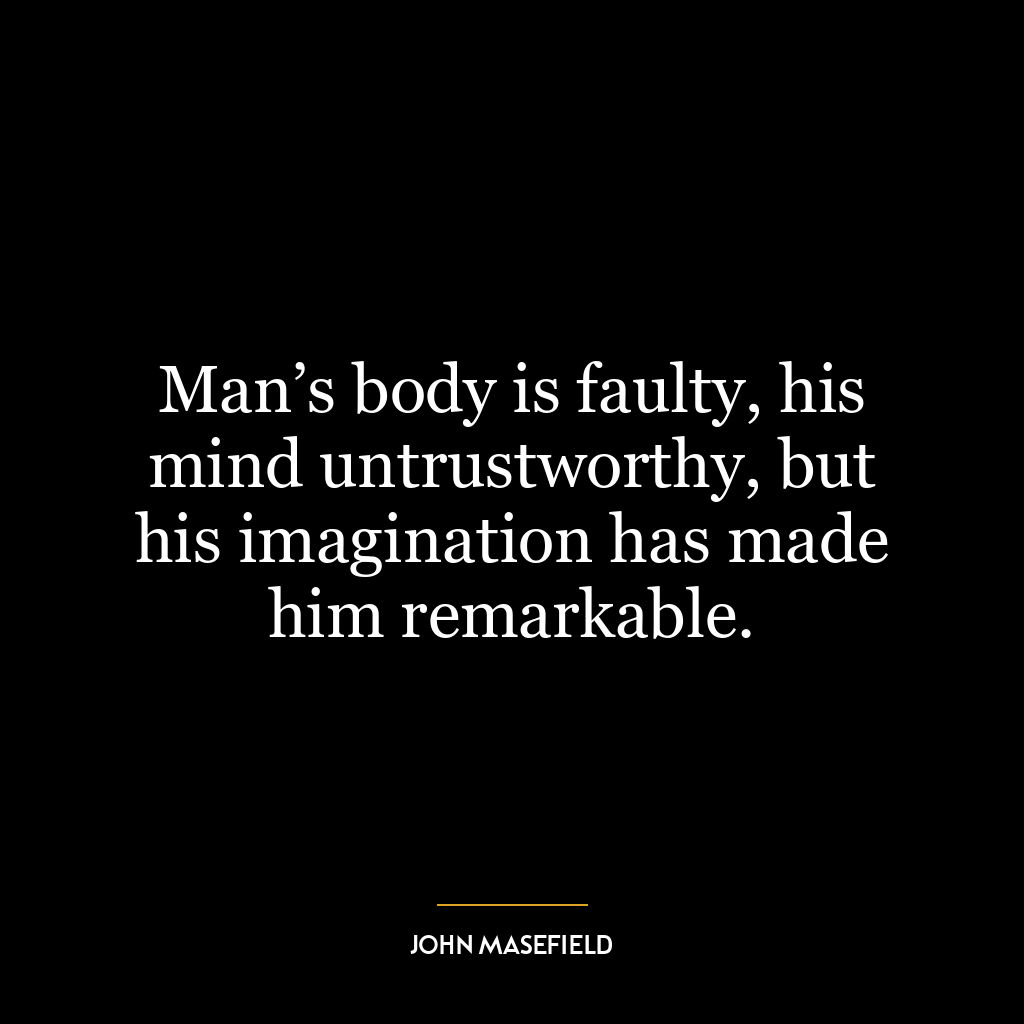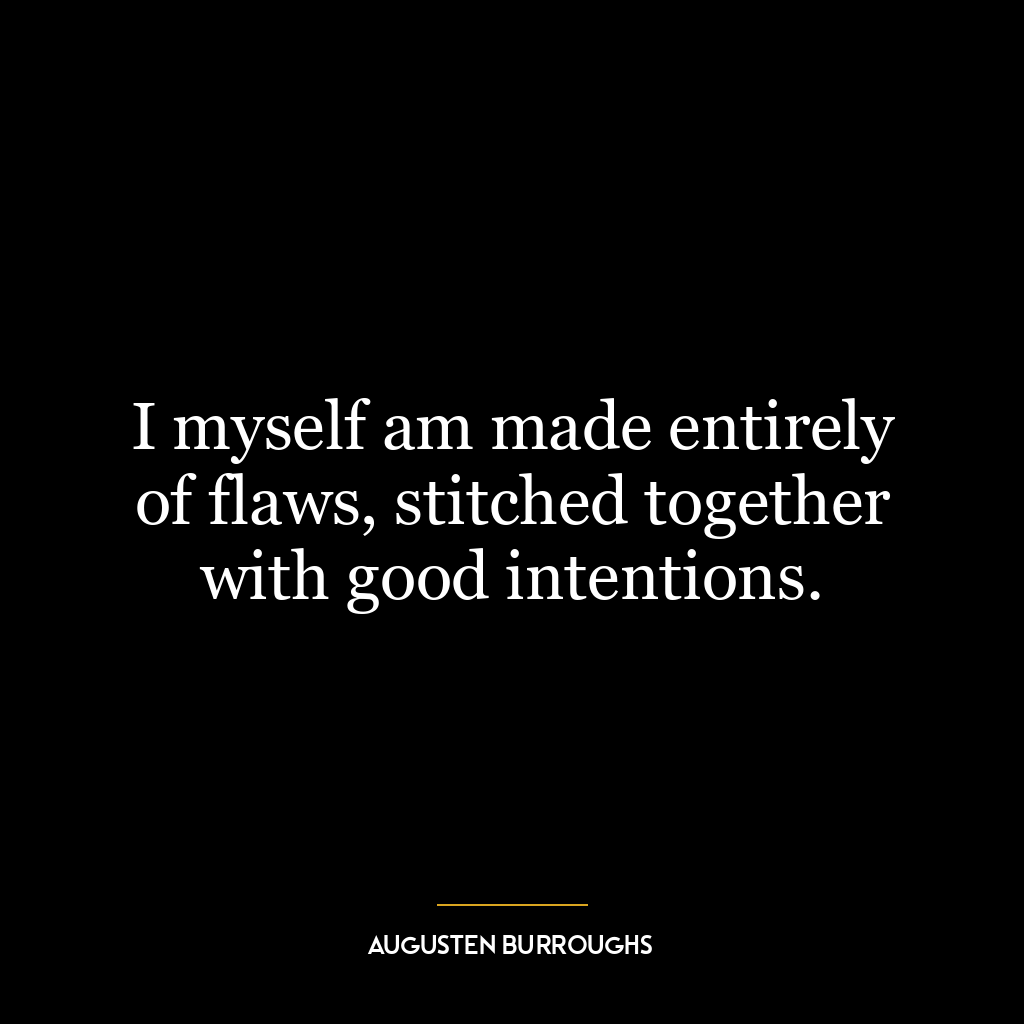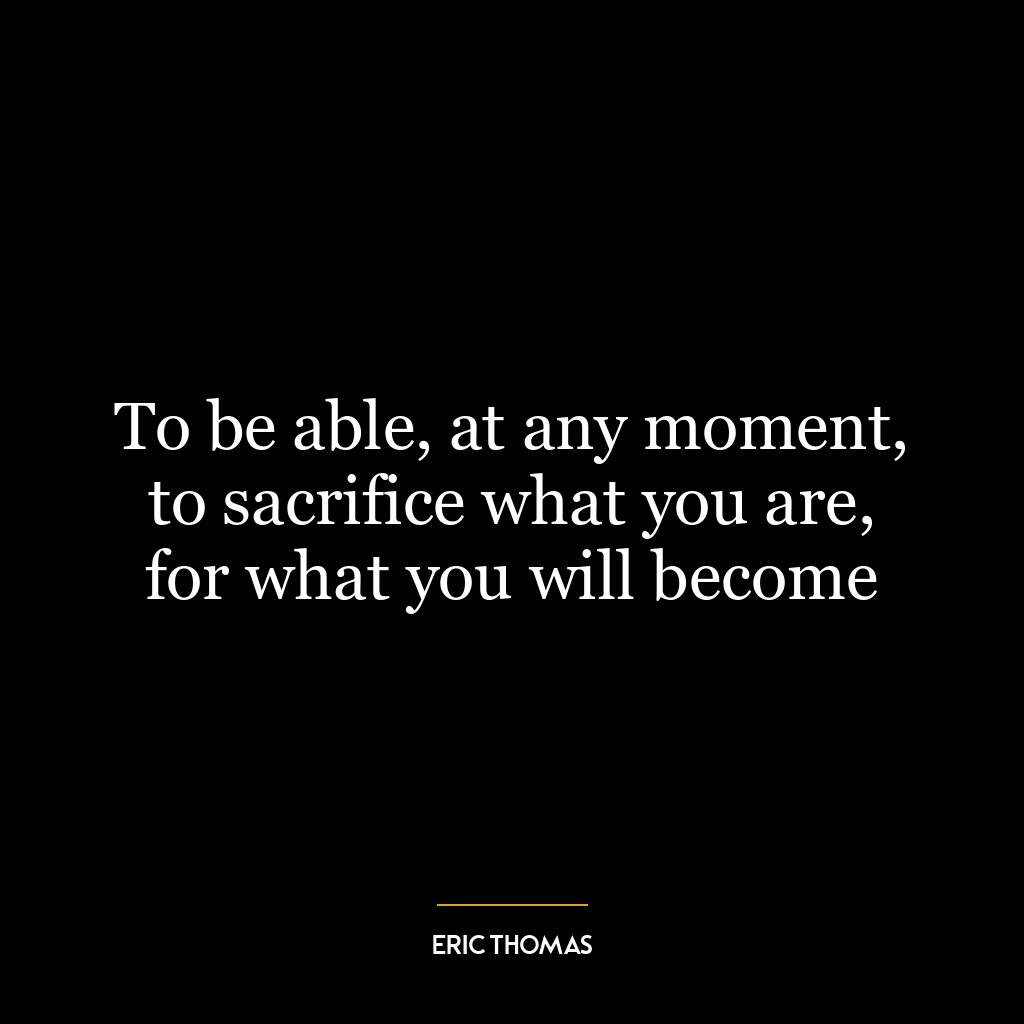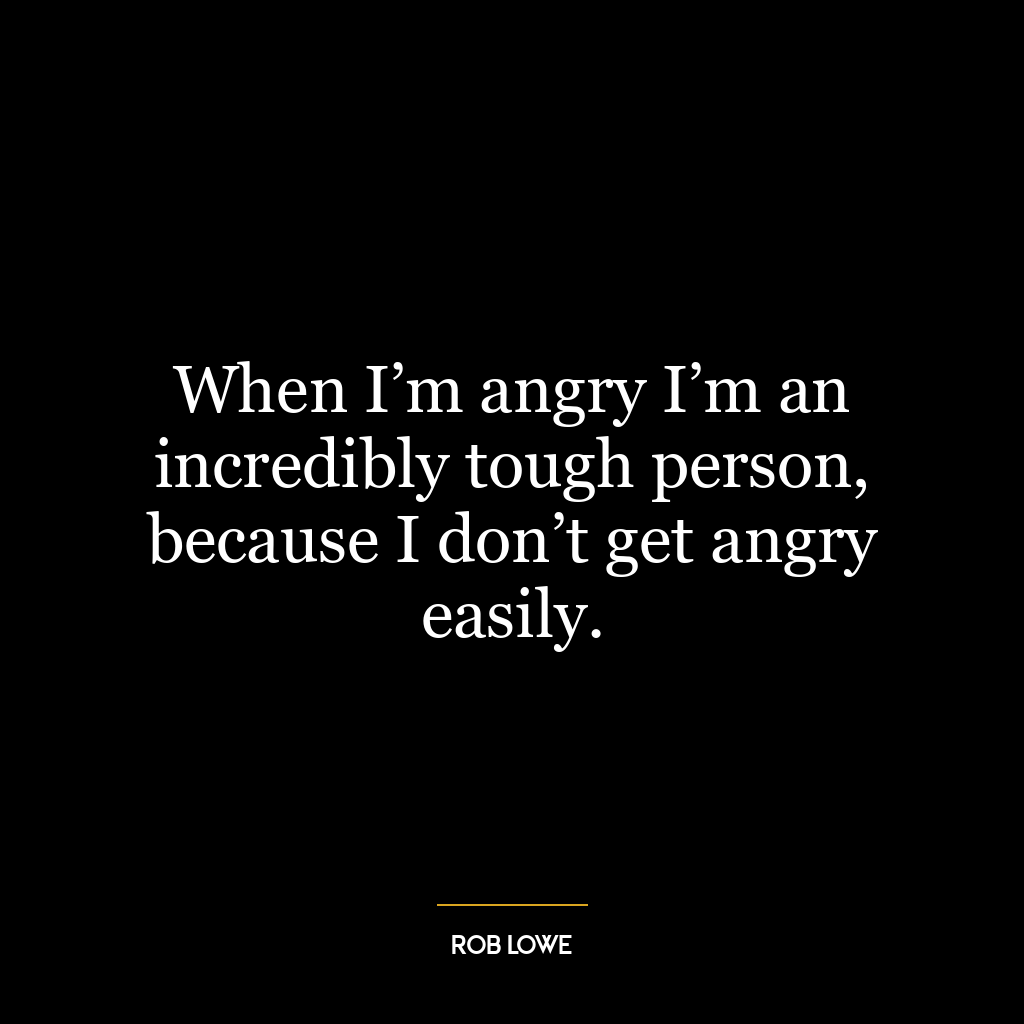'Flaws' Quotes
Flaws Quotes’ are powerful statements that highlight the imperfections and vulnerabilities of individuals. These quotes have been used throughout history to remind people that it is okay to have flaws and that they should be embraced rather than hidden. They have inspired individuals to accept…Read More
Flaws Quotes’ are powerful statements that highlight the imperfections and vulnerabilities of individuals. These quotes have been used throughout history to remind people that it is okay to have flaws and that they should be embraced rather than hidden. They have inspired individuals to accept themselves for who they are and to strive for self-improvement rather than perfection. Famous figures such as Maya Angelou, Albert Einstein, and Mahatma Gandhi have all spoken about the importance of embracing one’s flaws. These quotes have had a profound impact on society, promoting self-love and acceptance. They continue to resonate with people across the globe, reminding them that flaws are what make us unique and human.Read Less
Flaws Quotes’ are powerful statements that highlight the imperfections and vulnerabilities of individuals. These quotes have been used throughout history to remind people that it is okay to have flaws and that they should be embraced rather than hidden. They have inspired individuals to accept themselves for who they are and to strive for self-improvement rather than perfection. Famous figures such as Maya Angelou, Albert Einstein, and Mahatma Gandhi have all spoken about the importance of embracing one’s flaws. These quotes have had a profound impact on society, promoting self-love and acceptance. They continue to resonate with people across the globe, reminding them that flaws are what make us unique and human.
44 Notorious 'Flaws' Quotations and Sayings
Flaws – Symbolic Value
Flaws, defined as imperfections or weaknesses, have long been a subject of fascination and contemplation for humans. They hold a symbolic value that goes beyond their literal meaning, representing deeper aspects of human nature and society. From ancient philosophers to modern-day motivational speakers, flaws have been a recurring theme in various contexts, highlighting their symbolic significance.One of the most common symbolic interpretations of flaws is their association with vulnerability. In a world where strength and perfection are often glorified, flaws serve as a reminder of our human fragility. They make us realize that no one is immune to imperfections, and it is our flaws that make us unique and relatable. As Brené Brown, a renowned researcher and author, puts it, “Vulnerability is the birthplace of innovation, creativity, and change.” In this sense, flaws are not something to be ashamed of, but rather a source of strength and growth.
Flaws – Cultural and Historical Significance
The concept of flaws has also played a significant role in shaping cultural and historical beliefs. In many cultures, flaws are seen as a sign of bad luck or a curse, leading to discrimination and mistreatment of individuals with visible imperfections. For instance, in ancient Greece, physical perfection was highly valued, and those with disabilities or deformities were often shunned and considered inferior. This belief has been perpetuated in various forms throughout history, leading to the marginalization of individuals with flaws.On the other hand, some cultures have embraced flaws as a symbol of beauty and uniqueness. In Japan, the art of Kintsugi, which involves repairing broken pottery with gold, is seen as a celebration of imperfection. It is believed that the flaws in the pottery make it more valuable and beautiful, reflecting the Japanese philosophy of wabi-sabi, which embraces imperfection and impermanence.
Flaws – Common Themes in Motivational Contexts
In the world of self-help and motivation, flaws are often portrayed as obstacles that need to be overcome to achieve success. Many motivational speakers and coaches use the concept of flaws to inspire individuals to push past their limitations and reach their full potential. They emphasize the idea that flaws should not hold us back but rather serve as a motivation to strive for improvement.One common theme in motivational contexts is the idea of turning flaws into strengths. This approach encourages individuals to embrace their flaws and use them to their advantage. For example, someone who is introverted may see it as a flaw, but it can also be a strength in certain situations, such as being a good listener or a critical thinker.
Flaws – Portrayal in Art and Media
Flaws have also been a recurring theme in art and media, often used to add depth and complexity to characters. In literature, flawed characters are often the most relatable and memorable, as they reflect the imperfections of human nature. In movies and TV shows, flaws are used to create conflict and drive the plot forward. They also serve as a tool for character development, as flaws are often overcome or accepted by the end of the story.In the world of fashion and beauty, flaws have also been a subject of discussion and debate. The rise of the body positivity movement has challenged the traditional standards of beauty, which often exclude individuals with flaws. Many brands and influencers are now embracing flaws and promoting self-love and acceptance, leading to a more diverse and inclusive representation of beauty in the media.
Flaws – Impact on Understanding of Life and Society
The concept of flaws has a significant impact on our understanding of life and society. It reminds us that perfection is an unattainable goal and that flaws are a natural part of the human experience. It also challenges the societal pressure to conform to certain standards and encourages us to embrace our unique imperfections.Moreover, flaws also play a crucial role in shaping our perception of others. When we see flaws in others, we tend to judge and criticize them, often without understanding the underlying reasons. However, by recognizing and accepting our own flaws, we can develop empathy and understanding towards others, leading to a more compassionate and inclusive society.In conclusion, flaws hold a symbolic value that goes beyond their literal meaning. They have been a subject of contemplation and interpretation in various contexts, shaping our understanding of life and society. Whether seen as a sign of vulnerability, a source of motivation, or a tool for character development, flaws remind us of our humanity and the beauty of imperfection.
More Ideas to Explore

